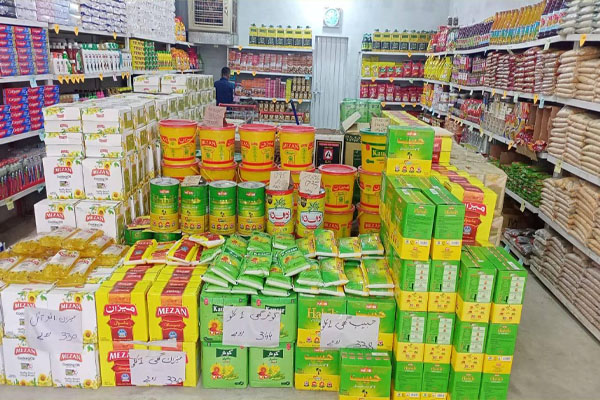Pey4Pakistan
MPA (400+ posts)
It is recommended to do as much Ibadah as we can, in order to reap benefits of this blessed night. Now that it is about a night, the Ibadah is also ought to be done during night. The acts (of Ibadah) include performing voluntary prayers, reciting Qur’an, studying Islam, making dua to Allah seeking His mercy & forgiveness, doing Dhikr of Allah in all possible manners etc.Staying awake at night and doing Ibadah is known as Qayaam-ul-Layl. I request all the readers to go through a detailed separate article named Qayaam-ul-Layl to understand the details of the subject.Ibadah for the ‘Night of Al-Qadr’ can be done in two (in fact three) manners:
I request the readers to go through the details about I’tikaf in a separate article named I’tikaf.The other way of doing ‘Qayaam-ul-Layl in masjid is to do so without observing I’tikaf’. In this case the special rulings associated with I’tikaf shall not apply.We have already read that the worship in this night is equivalent to worship done in 1000 other months. We have also read that whoever sincerely prays to Allah during this night, seeking His mercy, his all past sins will be forgiven. If all this at offer is not able to attract us, then it is a pity. Come on brothers and sisters, let us pray and get the benefits.The Prophet (PBUH) used to prepare himself specially for doing Ibadah in the last ten nights of Ramadan. Following hadith tells us about his specific preparation for this period:
The correct interpretation is that the Prophet (PBUH) used to get ready for the last ten days of Ramadan. Tightening his waist belt means to get ready, to work hard for the task to be undertaken (i.e. worship during those days).
This is a very common saying among the Muslims, whenever someone wants to emphasize that one should get ready to undertake any task, he/she should tighten his/her waist, thereby meaning to make oneself ready in all aspects and work hard to undertake the task successfully. It has got nothing to do with physical relations with ones spouse, absolutely nothing.But if someone is observing I’tikaf, then he is not allowed to have physical relations with his/her spouse during the period of I’tikaf (only). For those who do Ibadah at night without observing I’tikaf, there is no such restriction. Let us make our facts clear please.Concluding remarksLet us prepare ourselves in all aspects to perform Ibadah in whole month of Ramadan (even during nights of other months), more specifically during the last ten days of Ramadan. Let us try to reap maximum benefits of every Ramadan, specially the benefits of the last ten nights. Let us try to stand up for the sake of worshipping Allah in the nights of Ramadan. Let us try to search for the ‘Night of Al-Qadr’ and be among the blessed and the forgiven ones, Insha’Allah.May Allah forgive me if I am wrong and guide us to the right path…Ameen.
- ‘Qayaam-ul-Layl’ at home – This is one of the highly recommended ways of doing Ibadah at night. It includes performing Tahajjud prayers, reciting Qur’an, making dua to Allah seeking His mercy and forgiveness etc. Praying during night at home is considered to be a worship of very high grade as it is recommended by our beloved Prophet (PBUH) to perform voluntary prayers at home.
- ‘Qayaam-ul-Layl’ in masjid – Ibadah at night in last ten nights of Ramadan is also done in masjids. In this context I wish to highlight one more recommended act of worship i.e. I’tikaf. I’tikaf means ‘to confine oneself in a mosque for prayers, invocations and Ibadah, leaving the worldly activities for a limited no. of days.’ The Prophet (PBUH) used to observe I’tikaf in masjid during the last ten nights of Ramadan. It is a highly recommended Sunnah, and one of the ways of doing ‘Qayaam-ul-Layl’ in masjid.
I request the readers to go through the details about I’tikaf in a separate article named I’tikaf.The other way of doing ‘Qayaam-ul-Layl in masjid is to do so without observing I’tikaf’. In this case the special rulings associated with I’tikaf shall not apply.We have already read that the worship in this night is equivalent to worship done in 1000 other months. We have also read that whoever sincerely prays to Allah during this night, seeking His mercy, his all past sins will be forgiven. If all this at offer is not able to attract us, then it is a pity. Come on brothers and sisters, let us pray and get the benefits.The Prophet (PBUH) used to prepare himself specially for doing Ibadah in the last ten nights of Ramadan. Following hadith tells us about his specific preparation for this period:
Narrated Aishah (RA): With the start of the last ten days of Ramadan, the Prophet (PBUH) used to tighten his waist belt and used to keep awake all the night and perform Salat, and also used to keep his family awake for the Salat.
(Hadith No. 2024, Book of Superiority of the ‘Night of Qadr’, Sahih Bukhari, Vol. 3).Here again I wish to clarify something. I have heard people (scholars etc.) addressing gatherings on this subject, quoting this hadith; surprizingly and sadly, they interpret the hadith absolutely wrong and convey wrong message to common people in their lectures/speeches. They tell people that the phrase ‘… tighten his waist belt…’ signifies that one should not have physical relationship with his wife during the last ten nights of Ramadan. Now, this is an immature understanding of the hadith.
The correct interpretation is that the Prophet (PBUH) used to get ready for the last ten days of Ramadan. Tightening his waist belt means to get ready, to work hard for the task to be undertaken (i.e. worship during those days).
This is a very common saying among the Muslims, whenever someone wants to emphasize that one should get ready to undertake any task, he/she should tighten his/her waist, thereby meaning to make oneself ready in all aspects and work hard to undertake the task successfully. It has got nothing to do with physical relations with ones spouse, absolutely nothing.But if someone is observing I’tikaf, then he is not allowed to have physical relations with his/her spouse during the period of I’tikaf (only). For those who do Ibadah at night without observing I’tikaf, there is no such restriction. Let us make our facts clear please.Concluding remarksLet us prepare ourselves in all aspects to perform Ibadah in whole month of Ramadan (even during nights of other months), more specifically during the last ten days of Ramadan. Let us try to reap maximum benefits of every Ramadan, specially the benefits of the last ten nights. Let us try to stand up for the sake of worshipping Allah in the nights of Ramadan. Let us try to search for the ‘Night of Al-Qadr’ and be among the blessed and the forgiven ones, Insha’Allah.May Allah forgive me if I am wrong and guide us to the right path…Ameen.
سُبْحَانَ رَبِّكَ رَبِّ الْعِزَّةِ عَمَّا يَصِفُون َ ; وَسَلامٌ عَلَى الْمُرْسَلِينَ ; وَالْحَمْدُ لِلَّهِ رَبِّ الْعَالَمِينَ.
- Featured Thumbs
- http://shiawallpapers.pk/walls/lailatul_qadr_2-normal.jpg
Last edited by a moderator:






























